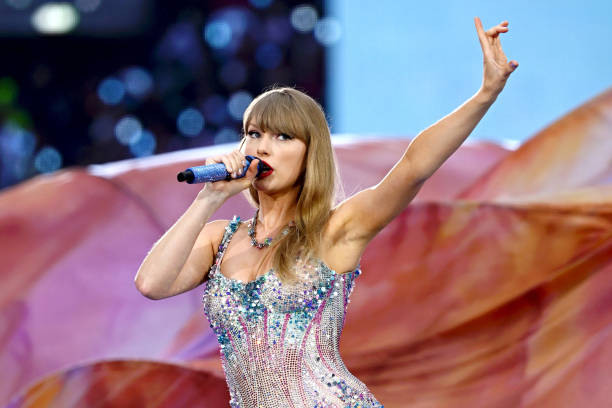Taylor Swift’s controversial decision to cancel her shows in red states has become one of the most debated topics in the entertainment world. The singer, known for her progressive political views, made her stance clear after the re-election of Donald Trump. In a heartfelt social media post, she announced that she could no longer perform in states that supported what she described as “divisive and regressive” leadership. This bold move has drawn both support and backlash, dividing her massive fan base.
Swift’s decision to cancel these concerts has generated mixed reactions, with fans in red states feeling hurt and abandoned. For many of these fans, Swift’s music had been a source of comfort and joy, transcending political divides. However, her announcement, which framed the choice as a matter of conscience, has been interpreted by some as a rejection of her fans in conservative areas.
On the other hand, Swift’s blue-state followers have largely supported her decision, seeing it as a powerful political statement. They appreciate her willingness to stand up for her values, even at the cost of financial loss. The singer has long used her platform to advocate for social justice and voting rights, and this decision seems to be an extension of her activism. As part of the boycott, she also launched a new line of merchandise, which is only available in blue states and online, specifically catering to her progressive fanbase.
Some red-state fans feel excluded, criticizing the move as performative activism. They argue that Swift, by limiting access to the merchandise, is further deepening the cultural divide. In contrast, supporters view it as a way for Swift to fund causes she cares about, such as social justice initiatives and voter engagement campaigns.
Many public figures, including fellow celebrities, have weighed in on the controversy. While some like Ariana Grande have praised Swift for taking a stand, others, such as Carrie Underwood, have questioned whether politics should interfere with music. For Underwood, music has always been about bringing people together, not alienating certain groups based on their political beliefs.
Swift’s decision has also sparked broader discussions about the role of celebrities in political discourse. In an age where entertainers have significant influence, there are growing concerns about the impact of celebrity activism on public opinion and cultural unity. Critics argue that artists should remain neutral and avoid using their platforms to push political agendas, while others believe it’s crucial for celebrities to use their influence for positive social change.
Industry insiders speculate that Swift’s boycott could have significant financial consequences. Red states are a major source of revenue for her tours, and the decision to cancel shows in these regions may cost her millions in ticket sales. However, Swift appears to be willing to accept this loss, prioritizing her personal beliefs over financial gain. She has hinted at plans to focus her efforts on blue-state voter outreach and activism, potentially organizing events and rallies to encourage political participation.
The situation also has implications for future tours, with many wondering whether Swift’s stance will influence other artists. If more performers follow suit, we may see the rise of politically selective touring, where artists perform only in regions that align with their values. This trend could create even greater divisions within the entertainment industry, as fans are forced to navigate artists’ political stances in addition to their musical preferences.
Despite the backlash, Swift remains firm in her decision, stating that her values of equality and love are non-negotiable. For Swift, this decision is not just about her music, but about creating a world where those values are upheld. She has emphasized that her decision to cancel concerts in red states is painful but necessary for her integrity.
Ultimately, Swift’s boycott raises important questions about the intersection of politics and entertainment. While some applaud her for taking a stand, others believe she is making a dangerous precedent by using her influence to deepen the political divide. Whether her decision will be remembered as a brave act of activism or a misstep that alienated her fanbase remains to be seen. As the debate continues, one thing is clear: Taylor Swift has cemented herself as one of the most influential and polarizing figures in the entertainment world today.

